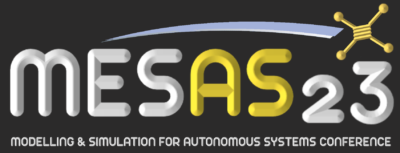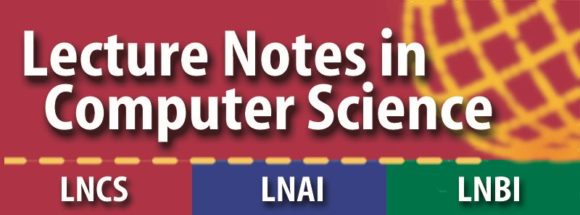MESAS’23 Call For Papers
The Full Papers submission phase is ongoing.
Final Papers Upload: AUGUST 21, 2023
Assignment of Reviewers: AUGUST 22, 2023
Review: until SEPTEMBER 22, 2023
Decision: until SEPTEMBER 27, 2023
Please note that SPRINGER company is providing for the MESAS’23 new paper collection platform in the EquinOCS system since last year. Your new registration to this platform is required if you did not attend last year’s MESAS. (Guidefor the EquinOCS system). After registration, you can use this direct MESAS’23 conference link to upload the abstract.
The traditional topics of the MESAS’23 are as follows (Other appropriate topics are welcome):
AxS/AI in Context of Future Warfare and Security Environment (Concepts, Applications, Standards, etc.)
- Autonomous Systems Strategy and Concept Development and Implementation in all Domains of Operation
- Advances in AI and its Impact on Future Operations
- The Role of the Robots and Foot Soldier in the Future Operations
- Security, Use of AxS as Lethal Instruments, Safety of Aviation
- Ethical, Psychological, Legal and Operational Aspects, CIMIC
- Cyber Security (in Context of AxS an their Applications)
M&S of Intelligent Systems – R&D and Application
- Autonomous Tactical Behavior
- Math Modelling and Simulation of AI Tasks
- RT Issue and Reality Gaps in Context of New AI Concepts, M&S of Future Operational Tasks
- Multi-robot Systems/Swarms, Benefits, Threats, and Challenges
- AI/machine-learning of the systems through M&S
- Distributed Control for Multi-robot Systems
- Robust Decision Making via Cooperative Estimation
- Relevant Concepts and Experiments
- Concepts and Visions of Future Warfare and Application
- M&S in Capability Evaluation of Robotic Swarms
- Co-simulation Tools for Multi-domain Analysis
- Effectiveness, Reliability, and Cyber-Security Issues
Future Challenges of Advanced M&S Technology
- Key Challenges of the Research and Development
- Capability Dev. in Context of Future Ops and Social Environment
- Man versus Computer, Advanced M&S Projects
- Future Technology and Impact on Society
- Validation and verification process for Autonomous functions (V&V via M&S)
FULL PAPER TEMPLATE AND COPYRIGHT
When submitting the full papers (based on Abstract approval) via EquinOCS system, please use the following instruction and templates requested by LNCS Series Producer and author’s guidelines and use their proceedings templates, either for LaTeX or for Word for the preparation of their papers.
Springer encourages authors to include their ORCIDs in their papers. In addition, the corresponding author of each paper, acting on behalf of all of the authors of that paper, must complete and sign a Consent-to-Publish form. The corresponding author signing the copyright form should match the corresponding author marked on the paper. Once the files have been sent to Springer, changes relating to the authorship of the papers cannot be made.




 NATO
NATO